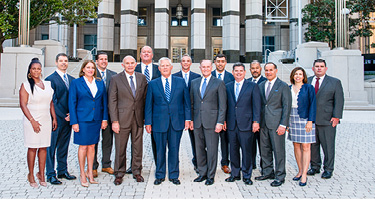Lawyers often question whether various non-competition provisions are still enforceable in Hawaii. These provisions generally fall into the following categories:
- Non-Competition;
- Non-Solicitation of customers and/or suppliers;
- Non-Solicitation of employees; and
- Prohibition or limitation on the use of customer and supplier lists and other material protected as trade secrets.
The short answer is that absent some exceptions, as the law currently stands in Hawaii, the provisions listed above may be enforceable if they are reasonable in scope, are warranted to protect a legitimate interest and do not unduly restrict competition.
Historically speaking, public policy in Hawaii favored reasonable non-competition and non-solicitation agreements. United States District Court Judge Kay articulated the public policy in Hawaii with the following language:
Hawaii statutory law provides, ‘Every contract ... in restraint of trade or commerce ... is illegal.’ H.R.S. § 480-4. This provision specifically exempts reasonable noncompetition agreements, and thereby establishes a policy in favor of such agreements."
UARCO Inc. v. Lam, 18 F.Supp.2d 1116, 1126 (D. Haw. 1998) (emphasis added).
Hawaii law, seemingly in line with the rest of the country, has recently begun to disfavor and more strictly scrutinize non-competition agreements. For example, in Prudential Locations, LLC v. Gagnon, 509 P.3d 1099, 1106 (2022), as amended (Apr. 1, 2022) the Supreme Court of Hawaii found a non-compete agreement that only restricted “a former employee of Prudential Locations, LLC (“Locations”), from “establishing her own brokerage firm in the State of Hawai‘i within one year after terminating her employment with Locations” and from soliciting persons “employed” or “affiliated with” Locations[]” unenforceable because it was not “ancillary to a legitimate purpose not violative of HRS Chapter 480[.]” Id. The Legislature has also prohibited the enforceability of non-competition agreements for employees from specific professions or industries, such as “an employee of a technology business.” HRS § 480-4.
Nevertheless, non-competition agreements signed in connection with the sale of a business or interest in a business, which can involve substantial monetary consideration, are more likely to be enforceable. Pursuant to HRS § 480-4, a covenant that restricts competition within the State is permissible if it relates to the transfer “of a business not to compete within a reasonable area and within a reasonable period of time in connection with the sale of the business;” HRS § 480-4(c)(1).
In Prudential Locations, LLC v. Gagnon, the Supreme Court of Hawaii recently referred to the enumerated exceptions under HRS § 480-4(c) as “the permissible restrictive covenant exceptions.” Prudential Locations, LLC v. Gagnon, 509 P.3d 1099, 1106 (2022), as amended (Apr. 1, 2022). Prior to Gagnon, in Technicolor, Inc. v. Traeger, the Hawaii Supreme Court referred to the exceptions in HRS § 480-4(c) as the “allowable type[s] of employment restraint under Hawaii’s antitrust laws.” 57 Haw. 113, 115, 551 P.2d 163, 165 (1976). Given the foregoing holdings by the Supreme Court of Hawaii, non-compete and non-solicitation provisions in agreements for the sale of a business are more likely to be found valid and enforceable. The sale of a business exception is widely recognized across the country. In January 2023, the Federal Trade Commission (“FTC”) announced a proposed rule that, if enacted, would result in nearly a complete ban on the use and enforceability of non-compete agreements. The FTC’s proposed rule provides an exception and allows non-compete agreements that are entered into as part of the sale of a business, provided that the contracting party owns at least 25% of the business.
Because of the uncertainty around determining actual damages at the time of breach, non-compete agreements often provide for liquidated damages. Liquidated damages provisions will be held reasonable and enforceable if the specified damage amount is reasonable in relation to either anticipated damages at the time of contracting, or actual damages. Am. Elec. Co., LLC v. Parsons RCI, Inc., 90 F. Supp. 3d 1079, 1089 (D. Haw. 2015) (emphasis added). If it is unclear whether liquidated damages are reasonable in relation to actual or anticipated damages, the difficulty of measuring the loss suffered is relevant to the analysis. “The more difficult the assessment, the greater the likelihood that the liquidated damages clause is valid.” Id. at 1092.
A. Bernard Bays has over 50 years of extensive commercial litigation experience in Hawaii. He currently practices at Starn O'Toole Marcus & Fisher.
John W. Kelly is licensed to practice in New York and Hawaii and specializes in commercial litigation and intellectual property. He currently practices at Starn O'Toole Marcus & Fisher.
























